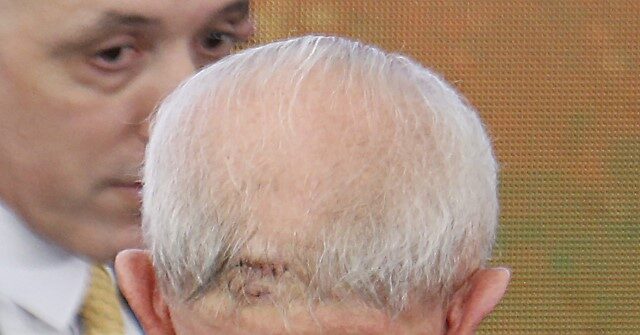In a surprising turn of events over the weekend, Venezuela’s Attorney General, Tarek William Saab, announced an investigation targeting Brazil’s President Luiz Inácio Lula da Silva. Saab alleged that Lula faked a head injury to sidestep attending the BRICS summit in Kazan, Russia, where the organization was set to discuss its expansion and other matters. This accusation surfaced shortly after BRICS member nations, including Brazil and Venezuela, convened for their 15th annual summit, where 13 additional countries were invited as “partner states.” Lula’s injury, reportedly sustained in a bathroom accident requiring urgent medical attention, became a focal point of Saab’s claims, as he asserted that the Brazilian leader used it as a pretense to disregard Venezuela’s long-pursued aspirations for BRICS membership.
The political dynamics surrounding Venezuela’s bid for BRICS membership have grown increasingly complex, especially under the leadership of Nicolás Maduro. Despite Maduro’s efforts to secure a place within this influential anti-U.S. bloc over the past decade, he faced a significant setback at the recent summit when he was reportedly snubbed at Lula’s request. The Brazilian president’s sudden withdrawal from the event raised eyebrows, and Saab seized the opportunity to allege that Lula’s injury was staged. He criticized Lula for lacking responsibility and suggested that the alleged deception was a strategic move to exclude Venezuela from the extended BRICS partnership invitations.
Saab’s accusations were bolstered by a video posted by Lula shortly after the incident, showcasing the Brazilian leader in good spirits, seemingly unaffected by his supposed injury. This was accompanied by photographs of Lula with visible stitches on the back of his head. Saab cited these developments as evidence of a “cynical” maneuver designed to mislead both Brazil and the broader international community. The political tension between Brazil and Venezuela further deepened as the attorney general framed Lula’s actions as part of a broader campaign to isolate the Venezuelan government on the global stage.
Further complicating matters, Brazil’s foreign policy adviser, Celso Amorim, indicated that Venezuela’s attempts to solidify its place within BRICS faced resistance due to a “breach of trust” aftermath of the recent disputed presidential election in Venezuela. This election had raised widespread concerns about legitimacy, further hampering the country’s efforts to gain support from Brazil within the BRICS framework. Amorim’s sentiments point toward a deteriorating relationship where trust has eroded, emphasizing that Brazil’s refusal was based not only on political ideology but also on foundational issues of honesty and transparency.
In response to these unfolding events, Saab expressed growing concern among left-leaning movements in Latin America regarding Brazil’s actions. He criticized Lula’s government for allegedly following the directives of external adversaries and declared that Brazil’s performance at the BRICS summit was “undignified.” Saab’s remarks highlighted the sense of betrayal felt by the Venezuelan leadership, who saw Brazil’s rejection as a cowardly attack and a significant ideological breach within the leftist alignment in the region.
Despite returning from the summit without the desired BRICS membership, Maduro maintained a defiant stance, asserting that no entities could silence Venezuela’s “voice of rebellion.” Following his interactions with leaders like Vladimir Putin and other allies, Maduro underscored his refusal to back down amid perceived international isolation. The summit resulted in further entrenchment of divides, with a clear indication that the relationship between Brazil and Venezuela remains tense, influenced heavily by political realities and historical grievances that shape their interactions on the global stage.

